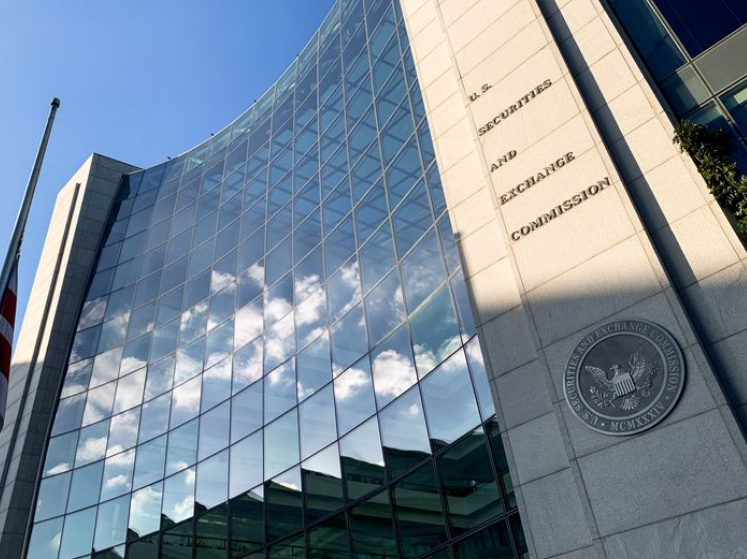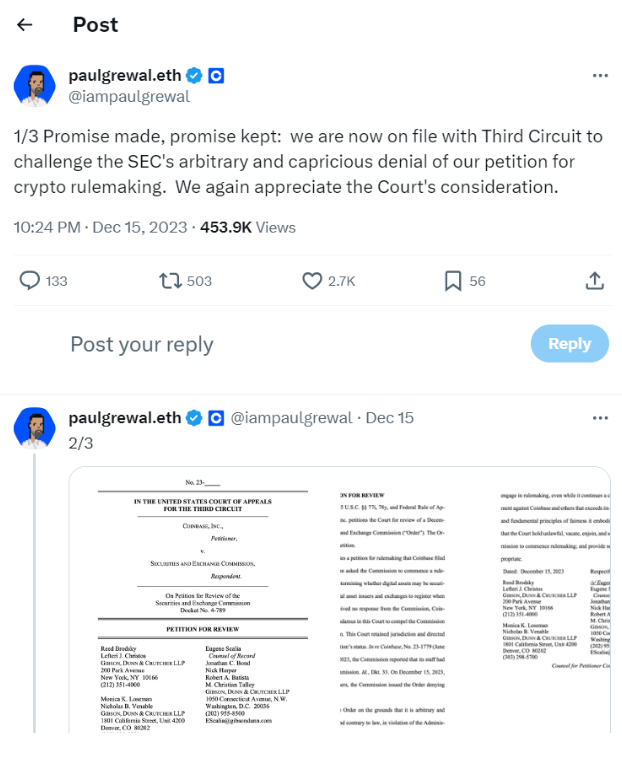In a significant legal development, cryptocurrency exchange Coinbase has taken the U.S. Securities and Exchange Commission (SEC) to court. The lawsuit stems from the SEC’s refusal to entertain Coinbase’s petition for a separate regulatory framework for cryptocurrencies, sparking a legal showdown that carries implications for investor protection and innovation in the U.S. crypto landscape.
The Petition for Regulatory Clarity: Coinbase’s Call to Action
Coinbase has long advocated for regulatory clarity in the cryptocurrency space. The exchange petitioned the SEC, urging the development of a dedicated regulatory framework to offer better protection for crypto investors and foster innovation within the industry. The petition addressed the unique challenges and opportunities presented by cryptocurrencies, calling for a tailored approach to regulation.
SEC’s Response: Stalemate and a Reliance on 1933 Legislation

After months of anticipation, the SEC, led by Chairman Gary Gensler, finally responded to Coinbase’s petition. The regulatory body, however, refused to develop a separate regulatory framework. Gensler’s rationale rested on the belief that the Securities Act 1933, enacted almost a century ago, remains sufficient for regulating cryptocurrencies.
The SEC’s decision to adhere to the Securities Act of 1933 reflects a reluctance to adapt to the rapidly evolving landscape of cryptocurrencies. While proponents argue that the existing legal framework can accommodate digital assets, critics, including Coinbase, contend that a dedicated set of regulations is necessary to address cryptocurrencies’ unique characteristics and challenges.
Coinbase’s Lawsuit: A Bid for Regulatory Innovation

Frustrated by the SEC’s refusal, Coinbase has taken legal action by filing a lawsuit against the regulatory body. The exchange aims to compel the SEC to develop a regulatory framework specifically tailored to cryptocurrencies. Coinbase argues that such a framework is crucial for investor protection and fostering innovation within the U.S. crypto industry.
Investor Protection: A Primary Motivation for Legal Action
A commitment to enhancing investor protection underpins Coinbase’s lawsuit. A dedicated regulatory framework would provide clearer guidelines, reduce uncertainties, and establish a more secure environment for cryptocurrency investors. Coinbase contends that the current regulatory ambiguity leaves investors vulnerable to potential risks.
Promoting Innovation: A Crucial Component of the Lawsuit
Beyond investor protection, Coinbase emphasizes fostering innovation within the U.S. cryptocurrency landscape. A tailored regulatory framework is essential for creating an environment that encourages responsible innovation, allowing the industry to thrive while ensuring consumer safeguards.
Implications for the Crypto Industry
Coinbase’s legal challenge against the SEC holds broader implications for the cryptocurrency industry. The outcome could set a precedent for how regulatory bodies approach cryptocurrencies, influencing the level of clarity, protection, and support provided to industry participants.
As Coinbase and the SEC engage in a legal battle over regulatory clarity, the cryptocurrency industry finds itself at a pivotal moment. The lawsuit highlights the ongoing struggle between traditional regulatory frameworks and the dynamic nature of digital assets. The outcome of this legal showdown could shape the future of cryptocurrency regulation in the United States, impacting investor confidence, industry innovation, and the broader regulatory landscape.

